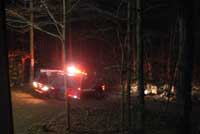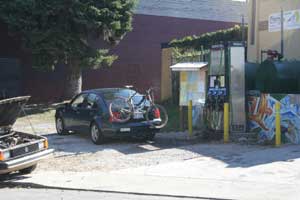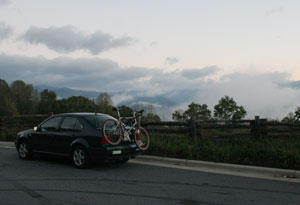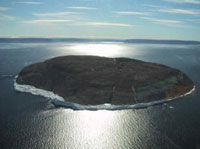The Council on Foreign Relations held a conference on Nov. 16 in New York where a number of high-powered panelists discussed the threat of a flu pandemic and the status of avian flu preparedness in the U.S. and around the world. The intensity and complexity of the problem, as laid out in the discussions, is truly mind-boggling. The experts seem to mostly agree that we don’t know when the pandemic is going to begin, and we don’t know how bad it’s going to be. Most also agree that we are pretty sure it’s going to be bad, but just how bad is a matter of debate.
“Hope for the best and prepare for the worst” is the operating mode for folks involved in crisis preparation and contingency planning. Some of the scenarios kicked around in the discussions talk about a massive pandemic, a horror scenario where millions die, 1 in 2 are sick, critical infrastructure breaks down, hospitals are totally overwhelmed. Hundreds of millions have no power, no fuel, no medicines, little food or water. I have not seen any predictions as to the real probability of this worst-case scenario, but it is clearly out there as a possibility. The factors that will determine the scale of the pandemic are either unknown or variable. What we don’t know is how soon the H5N1 virus will be able to start jumping easily from human to human and the pathogenicity of that virus. And one of the changing variables we control is our level of preparedness.
The effects of the next flu pandemic are difficult to predict, because these major variables are unknown or changing. Preparedness is a major factor, and there is now momentum on a global scale to get ready. However, preparations are only in the beginning stages, and we need a lot more time to be able to cope with a major pandemic.
In a discussion with David Nabarro, UN system senior coordinator for avian and human influenza, and David Fedson of Aventis-Pasteur, Michael Osterholm, Director of the Center for Infectious Disease Research and Policy at University of Minnesota lays out this picture in Session 2 of the CFR conference:
OSTERHOLM: (…) I mean, when you think about the fact that this if a pandemic were to occur today, there’s a very high likelihood we would begin to shut borders around the world. We live in a global, just-in-time economy today where this country, in particular, absolutely lives on the goods and services of much of the rest of the world. Many of our critical medical supplies, our pharmaceutical products, our food supply everything you can name that would come to a screeching and crashing halt if, in fact, pandemic began today.
Read the rest of this entry »

 Remember those paper-and-ink-based information storage devices with the multi-page user interface? Yeah – books! I just read Richard Clarke’s
Remember those paper-and-ink-based information storage devices with the multi-page user interface? Yeah – books! I just read Richard Clarke’s  Last week I picked up 10 gallons of used fryer oil from a local restaurant, and on Sunday I made my first one-liter test batch of biodiesel. I got a nice separation but the biodiesel is a bit cloudy, so there is probably some soap. Now I have to wash the stuff thoroughly, dry it and filter it, and then it should be ready to go in the car …
Last week I picked up 10 gallons of used fryer oil from a local restaurant, and on Sunday I made my first one-liter test batch of biodiesel. I got a nice separation but the biodiesel is a bit cloudy, so there is probably some soap. Now I have to wash the stuff thoroughly, dry it and filter it, and then it should be ready to go in the car …



